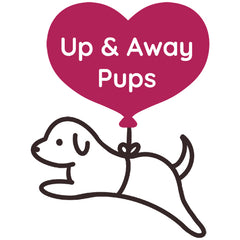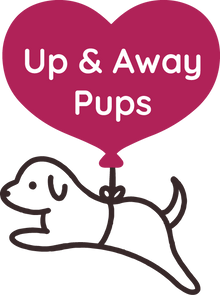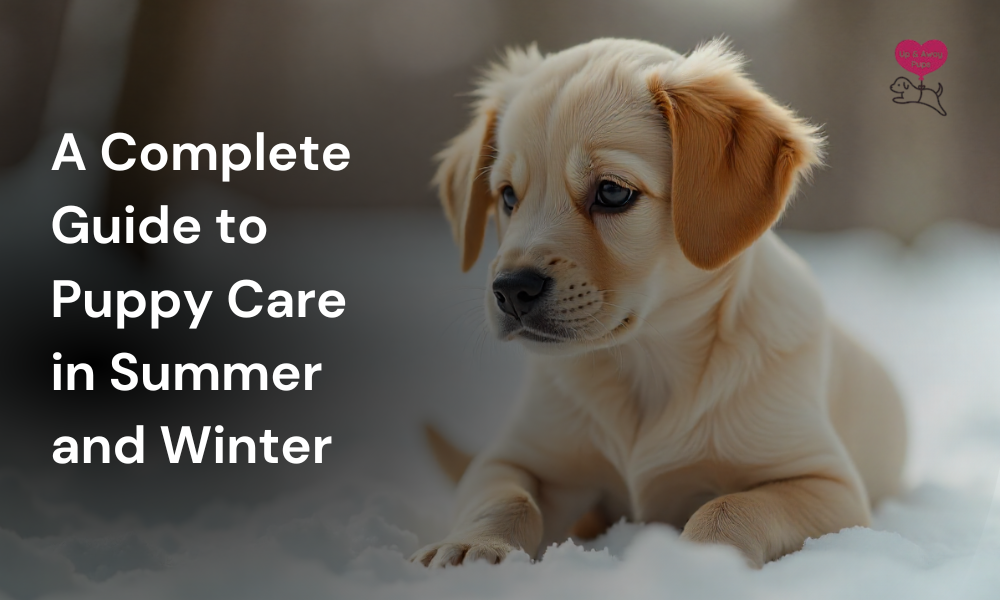A Complete Guide to Puppy Care in Summer and Winter
Puppies bring joy but require careful care that changes with the seasons. In summer, keep puppies cool, hydrated, and avoid hot surfaces to prevent heatstroke and paw burns. Limit play during peak heat and never leave them unattended in cars. In winter, protect small or short-haired puppies from cold with coats and short outdoor visits. Year-round care includes maintaining vaccinations, parasite prevention, and mental stimulation through indoor activities. Being mindful of these seasonal needs helps keep puppies safe, healthy, and happy, ensuring you enjoy every moment with your furry friend.
Puppies are tiny little bundles of joy and trouble. From random zoomies to furniture destruction, they’ve got quite the personality. However, aside from being your cute little friend, they’re also your responsibility. Similar to how the needs of a human child change with the seasons, pup requirements do as well. In this guide, we will walk you through some smart and simple ways to keep a puppy safe and happy, no matter what the season outside is like.
Summer: Keep Cool, Calm, and Hydrated
The summer can be quite gruesome, or pleasant, depending on where you might be. For the sake of simplicity, we’ll just assume the weather is generally associated with summer. The heat is on and the air is dry.
The heat tends to hit puppies harder than adult dogs, as grown-ups are more equipped and trained to better regulate their body temperature. Look at your puppy and see if they’re panting heavily, drooling, have bright red gums, are wobbly, or near the point of collapsing. That’s right, it does happen, unfortunately. Heatstroke is a serious and life-threatening issue dogs and pups may face. If you see these signs, you need to help your puppy cool down and/or call your vet right away.
Heat hits puppies harder than adult dogs. Watch for heavy panting, drooling, bright red gums, wobbliness, or collapse. Heatstroke is serious and can be life-threatening. If you see these signs, cool the pup and call your vet right away.
Thankfully, you don’t need to look for a miracle drug here to help out your pups. Water, fresh and clean, is all you need.
Physical Activity During Summers
Dogs love to play outside, as is clear to see. If they could, they’d run outside at any given moment. You have to, alas, be the parent and limit strenuous play during the hottest parts of the day.
Asphalt and concrete tend to heat up quite a bit and result in burning the paws of your pup. How to treat and prevent burned dog paws is something every pet parent ought to know. If you must take your dog outside during hotter times of the day, choose grassy or shaded routes when possible. Protective booties or paw wax can help on hot days.
A Major Hazard
An unfortunately common occurrence we see is individuals leaving their dog or puppy inside the car. If the AC is turned on, sure, for a couple of minutes, your dog should be fine. However, they can always panic, triggered by your absence and noises. If the AC isn’t on, the inside of the car becomes extremely hot and even breathing is a struggle.
Winter: Dry Warmth and Careful Outings
Cold weather brings its own share of risks to the table. You see, some breeds are quite adept at dealing with winter, for example, all furry and double-coated pups. However, small, short-haired, very young, or very tiny puppies are at risk, for they lose body heat quite fast.
Watch for shivering, slow movements, whining, or reluctance to move. These are early warning signs that it is time to go inside.
Coats and sweaters can be useful for short-haired pups or very chilly days, as a coat helps keep a puppy dry and warm on wet or snowy walks. Make sure any clothing fits well and does not restrict movement or chewing. The sooner you introduce layers to your puppy, the better, so your puppy accepts them as normal.
Keep outdoor time short when temperatures drop. A quick bathroom break is safer than a long play session on bitter days. Indoors, offer warm bedding away from drafts and maintain hydration.
Year-Round Basics
Obviously, you need to maintain the recommended vaccine and vet visit schedule. This shouldn’t be affected by the season.
Parasite prevention matters all year. Fleas, ticks, and heartworm are threats even outside peak seasons in many areas. Monthly, year-round parasite control helps protect puppies and people in the household. Talk with your vet about the best product and timing.
Training, socialization, and mental work reduce risky behaviors. Short sessions indoors on hot or cold days keep learning on track. Puzzle toys, scent games, and gentle play teach good habits without overheating or overexposure.
Safety kit for every season: fresh water bottle and bowl, a light towel, booties or paw wax, a sweater or coat for winter, a first aid kit, and your vet and local emergency clinic contacts.
Conclusion
Seasonal care for a puppy is mostly common sense with a little planning. Watch the weather. Adjust walks and play. Keep water and shade handy in summer and offer warm, dry shelter in winter. Keep vaccines and parasite prevention up to date. Little changes day to day keep your pup safe and let you both enjoy every season together.
Before you go: if you ever think your puppy has heatstroke, hypothermia, or poisoning, act quickly and contact your veterinarian or a poison line right away.
FAQs
Can I Trim My Puppy's Coat Short for Summer?
Shortening a thick double coat is not usually recommended because it can reduce the coat’s natural insulation and sun protection. Talk with a professional groomer or your vet about safe clipping styles for your breed.
Is It Ok to Give My Puppy Ice Cubes to Cool Down?
Small ice chips are usually safe as a treat. Let them lick or chew slowly. For cooling after overheating, use cool water and shade and contact your vet if symptoms are severe.
How Long Can a Puppy Safely Stay Out in Cold Weather?
That depends on age, breed, coat, and temperature. Short outings for bathroom breaks are safest when it is very cold. Watch your puppy’s behavior and cut the trip short if they shiver or seem unhappy.


